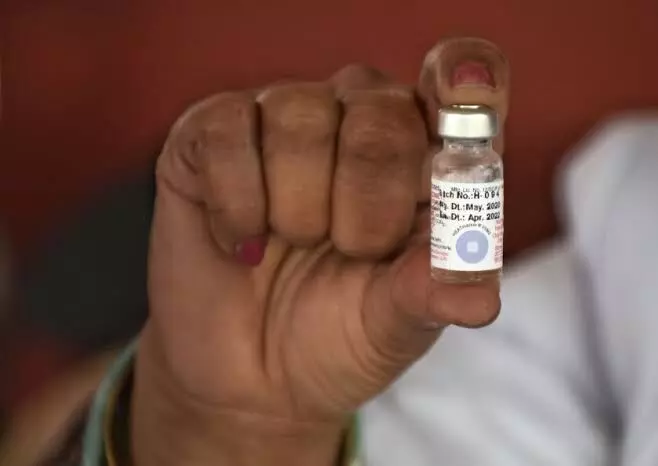
First U.S. Polio case in nearly a decade highlights importance of vaccination
text_fieldsNew York: The first case of polio in the U.S. since 2013 has shaken New York State, particularly because it occurred in an area where many people are not vaccinated against the disease, as per media reports.
In the last few weeks, health officials in New York identified the first person in nearly a decade in the U.S. to be diagnosed with polio. The person suffered paralysis.
The infected person is believed to have caught the virus from an international traveler. Three weeks after the case was announced, the New York State Department of Health said the virus had been found in samples of wastewater from New York City, following detection in samples from Rockland and nearby Orange County since May. Only 60 percent of people in Rockland County and 59 percent of those in Orange County are vaccinated against polio, compared with nearly 80 percent statewide.
"It is relatively unexpected and unfortunate that we have a case of paralysis from a completely preventable disease like polio," says Ananda Bandyopadhyay, deputy director for polio at the Bill & Melinda Gates Foundation. Public health officials are particularly worried because Rockland County and other areas of New York that have large Orthodox Jewish communities experienced a massive measles outbreak in 2019. The outbreak was attributed to a large number of unvaccinated people in the areas.
A polio outbreak may be harder to spot than measles: much like COVID, many polio cases are asymptomatic. Only one in four people who catch the virus develop coldlike symptoms—which likely would not be suspected to be polio—and one in 200 infected people develop paralysis. Scientists in London who routinely monitor the city's wastewater for pathogens also found polio in its sewage this year. This allowed public health officials to mount a quick response, including offering booster shots for children ages one through nine. But in the U.S., where most jurisdictions do not monitor wastewater as broadly, cases are typically found only after someone becomes paralyzed.
As a result of widespread vaccination and public health awareness efforts, the World Health Organization (WHO) declared polio eradicated in the Americas in 1994. "The success in terms of ending polio in the United States is one of the great American stories," says Kimberly Thompson, a public health expert and president of the nonprofit Kid Risk in Orlando, Fla. Since then the wild virus has been eradicated in every country except Afghanistan and Pakistan. "Many people had no idea it was still around," she adds.
That means that if today's parents aren't afraid of polio, they may decide it's not important to get their children vaccinated against it. "For each new set of parents, it's a question of how they view it," Thompson says. "But the choices people make for their kids are lifelong" unless those children get vaccinated as adults.























